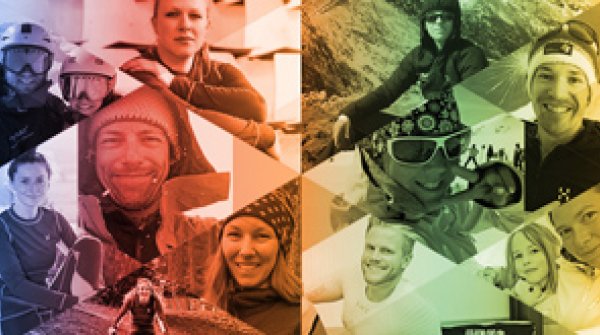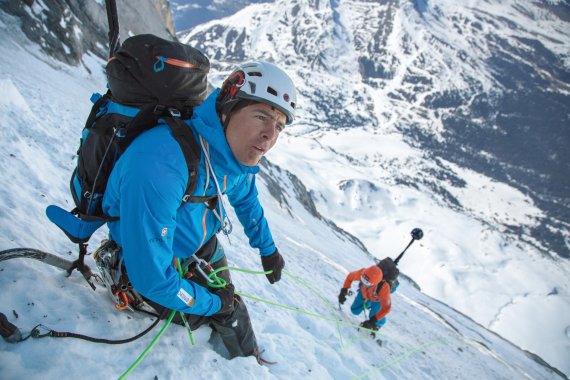
Or – as in the case of Dani Arnold – to race up the Schmid Route on the north face of the Matterhorn. To put this into context: Mere mortals take between eight and ten hours to complete this tour.
The man from Switzerland is a speed climber, and with his time of 1:46 hours, holds the record for the Swiss national shrine. His other roles are mountain guide and speaker. Despite his hectic schedule, the Alpine all-rounder made time for an interview during the "European Outdoor Film Tour".
Talking to ISPO.com, Arnold explains the difference between serious and trivial mountaineering, his business model, and which mistakes he will never repeat.
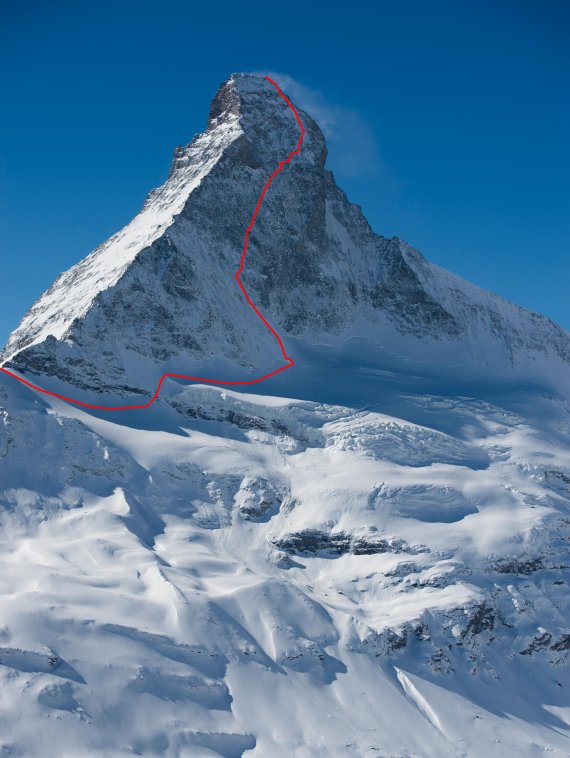
Mr Arnold, when do you get more of an adrenalin rush: Just before your next record-breaking attempt on a mountain, or just before appearing as a speaker?
Honestly: just before a speech. I feel at home in the mountains, but giving a speech is an entirely different discipline for me.
That's crazy when you think about it, since a lot less can happen to you on the stage...
These speeches are like a new job for me, which I need to get to grips with. I am really interested in the mental aspect of climbing, and it is fascinating that it is not often possible to transfer this strength to everyday life.
"The impact caused a shock wave"
You only returned from an expedition in Pakistan a few weeks ago. How difficult did you find it to return to reality?
It really wasn't easy for me at all this time. We were away for two months and spent a lot of that time in a tent waiting for the weather to improve. When I was back in Switzerland, it took me about two or three weeks to get back into my daily routine.
At one point, waiting in the tent almost became fatal. What went wrong on the expedition?
At around 5000 metres, on a glacier plateau, we had to wait in our tents before we were able to continue at night in better snow conditions. There was a serac about 500 metres away from us. It is a part of a glacier that forms on crevasses and looks a little bit like a tower. This serac was around 30 metres tall and came crashing down.
What happened after that?
The impact caused a shock wave that nearly tore our tents away – with us in our sleeping bags.
How much time did you have to react?
Four or five seconds. Which isn't actually all that bad, but you would never make it out of your sleeping bag in that time. So we used all of our strength to hold onto our tents and were lucky.
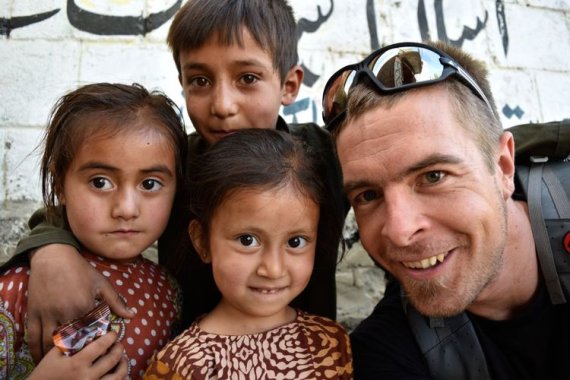
What lessons did you learn from this?
It was a blatant mistake. There are so many invisible dangers in the mountains, but this serac was so obvious. We underestimated just how dangerous it was. This kind of experience, providing you survive it, is invaluable. We will never make the same mistake again.
What effect do these extreme climbing projects have on you?
A few years ago I was in Scotland, where I climbed one of the most difficult climbing paths - it was incredibly dangerous and extremely exhausting psychologically. After this path, I was mentally weak for a very long time. I felt drained, just completely empty. Then I have to do something totally different straight away, so that I get into a different frame of mind. But this feeling of being drained lasts at least two or three weeks.
"I really considered giving up"
What was it like after your speed record on the Matterhorn?
From a psychological perspective, the project didn't have much of an effect, since it wasn't overly demanding. But from a physical perspective, I felt the record for a good three weeks. The conditions weren't ideal, particularly with really soft snow at the beginning. At the first ascent I kept slipping back and was on my last legs at one point. That was when I really considered giving up.
How do you motivate yourself in those situations when things are going so badly right from the start?
On the Matterhorn in particular, I kept thinking about the section with the steep wall and the finished snow. So I wasn't focussed on the summit as the major goal, rather the task broken up into sub-goals.
Is constantly changing projects your way of trying to prevent yourself from being driven by records?
My hope is that it will work. After Ueli Steck beat my record on the Eiger north face by six minutes (2:22 hours) at the end of November, naturally the question of "What will Arnold do now?" came up. Then I feel the pressure of being forced to go in a direction that I don't want to take. On the other hand, I can understand it from the sponsors' perspective, for whom such projects are important for their image.
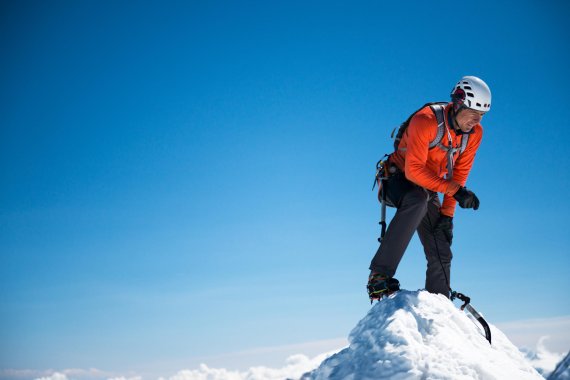
But Steck's record didn't pass you by completely unnoticed...
Naturally it irritated me, but I am not so fanatical that I need to reclaim this record at any cost. Which is extremely important in such a dangerous area. But I'm not making any promises that I won't ever try it again either (laughs).
So what does the schedule of a professional mountaineer look like?
At the end of autumn, beginning of winter, I try to schedule major expeditions. They usually take place in summer. Then there is also a smaller tour in March or April. I have planned a small project in Scotland for mid January. And between all that, I work as a mountain guide and speaker. That is my fixed schedule until the end of February, when I switch my focus to serious mountaineering projects.
Dani Arnold explains serious mountaineering
Serious mountaineering? Is there such a thing as trivial mountaineering? And if so, what is it?
With serious mountaineering, I mean ice climbing, for example. Trivial mountaineering is anything to do with speed climbing. That refers to the mountaineering aspect for me, the level is much lower. Conversely, that means that I spend a lot of time doing strength and technique training. That goes on until spring, when I start doing more endurance training, and then I lose my climbing level pretty quickly.
Does it frustrate you that you lose your skills over the summer?
Naturally. You invest so much, train for the difficult level 8B or 8C, and then at the end of summer you only just reach standard level and 7A. I can still climb in principle, but it doesn't look good. The only good thing is that it doesn't take me long to get back to my old level.
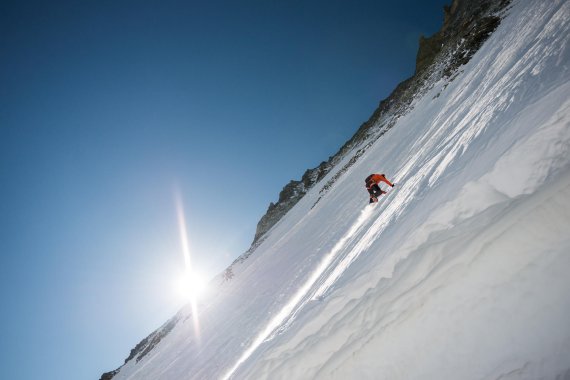
Why do you subject yourself to this strenuous rhythm between technique in winter and endurance in summer?
Sticking to sport climbing for several months at the highest level isn't for me. I have a project for two months and then give it my all. But my motivation doesn't usually last longer than that.
Do you need this change between commercial and demanding missions from a financial perspective as well?
No, just the difficult mountaineering would be enough. However, I am of the opinion that you shouldn't spend too much time doing the difficult, dangerous things. That greatly increases the chance of something happening to you. Apart from that, I am more motivated after a short break.
The limit is yet to come
Who coordinates all of your projects, who takes care of the business behind Dani Arnold the athlete?
I do it all myself. It might be a bit unusual, but I really like it. It has nothing at all to do with climbing, it's a completely different aspect. Negotiating, contact with people, I enjoy it. I know that a manager would probably be able to get a better deal for me, but the personal contact is more important to me. And when all is said and done, if something goes wrong it is my fault. I am the only one responsible.
Your series of lectures is called "Der Grenzgänger" (pushing the limits) . When will every limit have been explored?
I don't think that will ever be the case. After the first Mont Blanc ascent (editor's note: 7th August 1786 by Jacques Balmat and Michel-Gabriel Paccard) people said that Alpinism was dead. Even if we keep on thinking that the most difficult challenge has been completed, that isn't the case.
Dani Arnold's personal Top 5 ascents
- Crack Baby, speed record, time: 27 minutes 13 seconds
- Mooses Tooth, Bird of Prey, Alaska
- Matterhorn, speed record, time: 1 hour 46 minutes
- The Hurting, mixed route, Scotland
- Torre Egger, first winter ascent, Patagonia
 OutDoor by ISPOOutDoor in transition
OutDoor by ISPOOutDoor in transition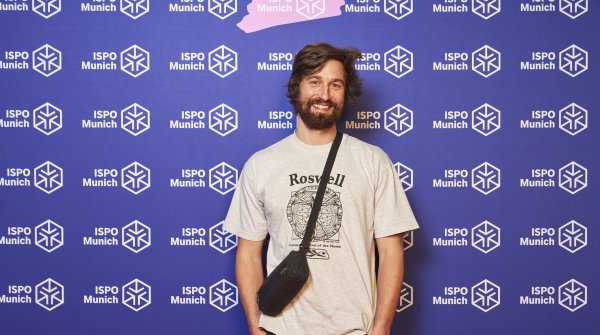
- ISPO awards
- Mountain sports
- Bike
- Design
- Retail
- Fitness
- Health
- ISPO Job Market
- ISPO Munich
- ISPO Shanghai
- Running
- Brands
- Sustainability
- Olympia
- OutDoor
- Promotion
- Sports Business
- ISPO Textrends
- Triathlon
- Water sports
- Winter sports
- eSports
- SportsTech
- OutDoor by ISPO
- Heroes
- Transformation
- Sport Fashion
- Urban Culture
- Challenges of a CEO
- Trade fairs
- Sports
- Find the Balance
- Product reviews
- Newsletter Exclusive Area
- Magazine

